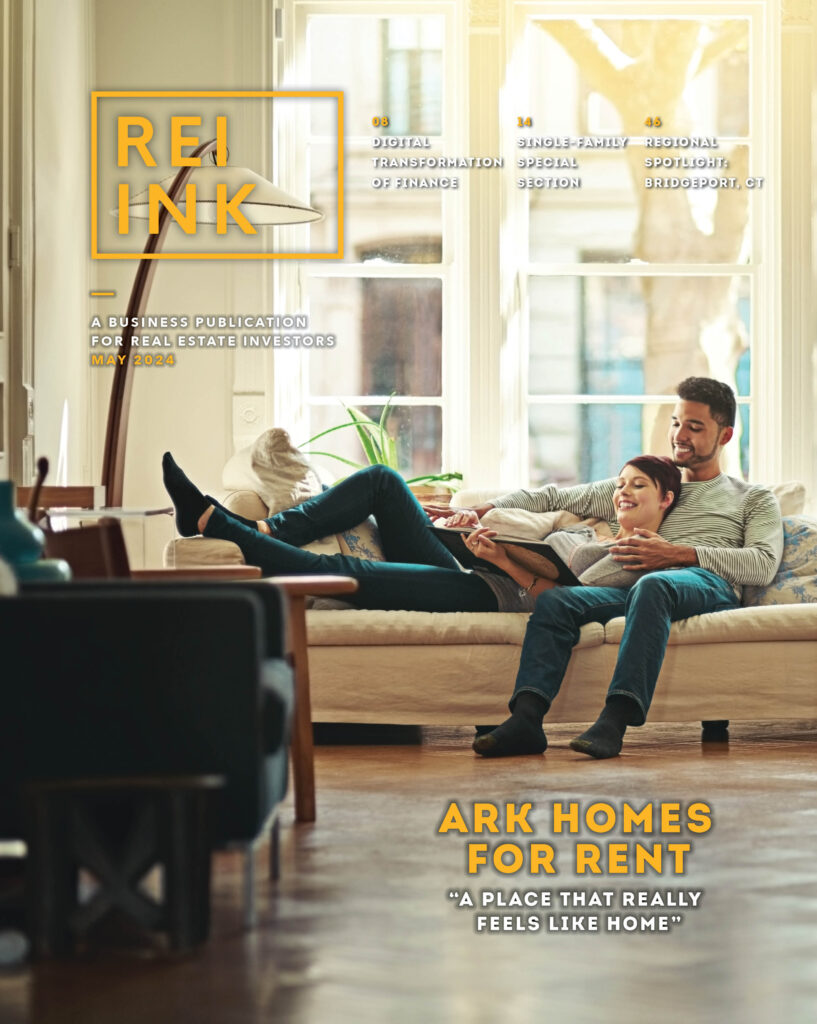Casting a Wider Net

Technology Has Made It Easier to Surface Auction Properties
By Kathleen Lappe
When you hear the term real estate auction, it is not surprising that your thoughts likely turn to desperate sellers or bank-owned properties, and rightfully so. During the 2007 housing crisis, auctions were an effective way to unload thousands of foreclosed properties, and real estate investors were able to snap them up at a significant discount.
Today, as property values soar and technology has enabled people to shop for homes online and in a growing number of instances purchase them sight unseen, more sellers are turning to auctions as an efficient way to sell their home for the best price.
Outside the U.S., auctions are a very common and accepted way to sell a home. Auctions create competition, they attract serious buyers and they provide certainty that the transaction will close on a specific date.
With more owner-occupants choosing to go the auction route, auctions should be given the same attention in competitive markets as they are during a slow market. The difference is that rather than bidding on a distressed or bank-owned property, you are likely to see a wide variety of homes that fit your investment criteria.
Many of the homes for sale via auction today are “conventional product” in the price range of $300,000 to $600,000, typically three- or four-bedroom homes in good school districts that would be easy to rent — i.e., the types of homes desirable to first-time home buyers or single-family home renters.
Until now, auction listings were not easily accessible. Surfacing them required visiting multiple auction websites, connecting with industry professionals and searching real estate classified listings or county courthouses records.
Today, they are available on DirectOffer.com, a real estate search website where you can find the broadest selection of traditional for sale listings along with listings from AuctionLook.com, the nation’s largest aggregator of auction properties, as well as a growing number of leading auction companies, such as Williams & Williams. The DirectOffer app is available to download in the App Store or Google Play so you can see new listings as they come available.

How to compete in today’s auction market
Just as technology is making it easier to surface properties being sold at auction, it also has influenced how auctions are conducted. Although live auctions still take place, virtual auctions have been growing in popularity for several years and accelerated after COVID-19’s stay at home and social distancing mandates put a halt to live auctions. Hybrid auctions, which combine a live auction with online participation, also are becoming more common.
Online auctions take place in real-time like a live auction or span over a period of days or even weeks and start with a minimum price. In these multi-day auctions, participants have the opportunity to bid 24 hours a day, seven days a week, until the auction listing closes.
Real-time auctions operate on a bidding countdown clock. When the clock expires, the property is sold to the highest bidder. But often, it is not that cut and dried.
If no one bids after the time on the clock expires, the seller can then decide to take the traditional route to sell. This also gives the seller an indication that the price point of sale might be too high. However, if there are multiple bids within the last few minutes, often the sale will go into extended bidding.
Extended bidding can be done in a timeframe that the seller picks, so if one person clicks to bid and another one does it within a minute, the auction remains open and bidding continues. For example, if an auction is set to end at 10 a.m., it actually might not end until 10:30 a.m., if many people are still bidding. The time schedule of one minute between bids before closing the sale needs to stay open until there is only one bidder within that time frame. This allows for a clear and defined winner.
Whether you are buying in a real-time or multi-day online auction, the majority of the bids often come in the last two hours and sometimes down to the last 10 minutes, so being very diligent on watching the sale is important when participating online or via simulcast. You must have your finger on the button (think eBay).
One way to avoid competition and losing a property in the final seconds at auction is to make a direct pre-offer. At the end of the day, the seller is looking for a certain price. The selling agent/auctioneer is required to present direct offers to the seller as part of their fiduciary responsibility as an agent of the seller. If you pursue this strategy, keep in mind sellers will not take pre-offers that are less than what a comparable market pricing analysis is suggesting.
Read the fine print and go in prepared
A real estate auction listing contains information on the property and starting or reserve bid price as well as important details about the auction itself, including required deposit, registration requirements, date of auction, appraisal, and more.
Live, virtual and hybrid auctions require that all potential buyers register for the auction, and many will require a deposit prior to being allowed to bid and or a prequalification from the bank.
Auctions require the buyer to do their own due diligence. Most auctions allow potential buyers to tour the property during a designated time period before bidding starts. Plan to arrive early if you are attending in person. It also is critical to talk with planning and zoning and do discovery on HOA rules in accordance with what is allowed before bidding, especially if the plan is to rent the property or to build. Most auction properties have ironclad contracts and when you start bidding you are agreeing to this contract. Therefore, doing your diligence upfront becomes extremely important.
This is also the case when it comes to determining the value of the property. The bidding process generally quantifies the value of the property and rarely comes in less than the property value. This means a standard comparative market analysis (CMA) will provide a good idea of what the property will most likely sell for.
Keep in mind that when you get data from other sites that are selling similar real estate at auction, the sold price is often the hammer price and does not include the buyer’s fee. To find the correct sale price, you have to go to the PVA, as it may have actually closed at a lesser price.
Speak Auction Speak
Auctioneers are known for talking fast. They also use terms that are important to be familiar with.
Buyer’s Premium
The additional cost over and above the hammer price. The premium is usually a percent of the purchase price or a flat fee, whichever is greater. The fee is paid by the winning bidder.
Cancellation Fee
The fee charged to a winning bidder when they do not fulfill their post-auction obligations. The goal of the fee is to encourage bidders to take their bids seriously.
Direct Pre-offer
Indicates that the seller is open to offers and counter-offers outside of an auction.
Multi-Par
A multi-parcel or multi-par auction is a type of real estate auction where the property for sale is broken up into different parcels before being auctioned off. This type of auction is common when there is a large amount of acreage being sold off.
Reserve Price
The lowest price that the seller is willing to accept. The reserve price is established at the time of the listing and can be found on the property details page.
Starting Bid
The opening price for a property to be bid on at an auction.
It’s not over until it’s over
Just because the hammer comes down, and you are not the winning bid, it does not mean you are out of luck. Even though the winner qualified and put the deposit down, they still have to get to closing. We know that can fall apart on occasion, and if it does, the backup buyers have a shot at going to closing.














